Introduction
Pet Safe Herbicide choices are an important consideration for pet owners who want a nice, weed-free yard but also want to keep their pets safe. Many pet owners have weed issues and want to get rid of these weeds safely without harming their pets. Conventional herbicides typically contain toxic chemicals that can poison dogs, cats, and other pets through skin contact, inhalation, or ingestion. Because of this, a pet safe, effective, and efficient option to maintain a nice yard and keep your pets safe is necessary!
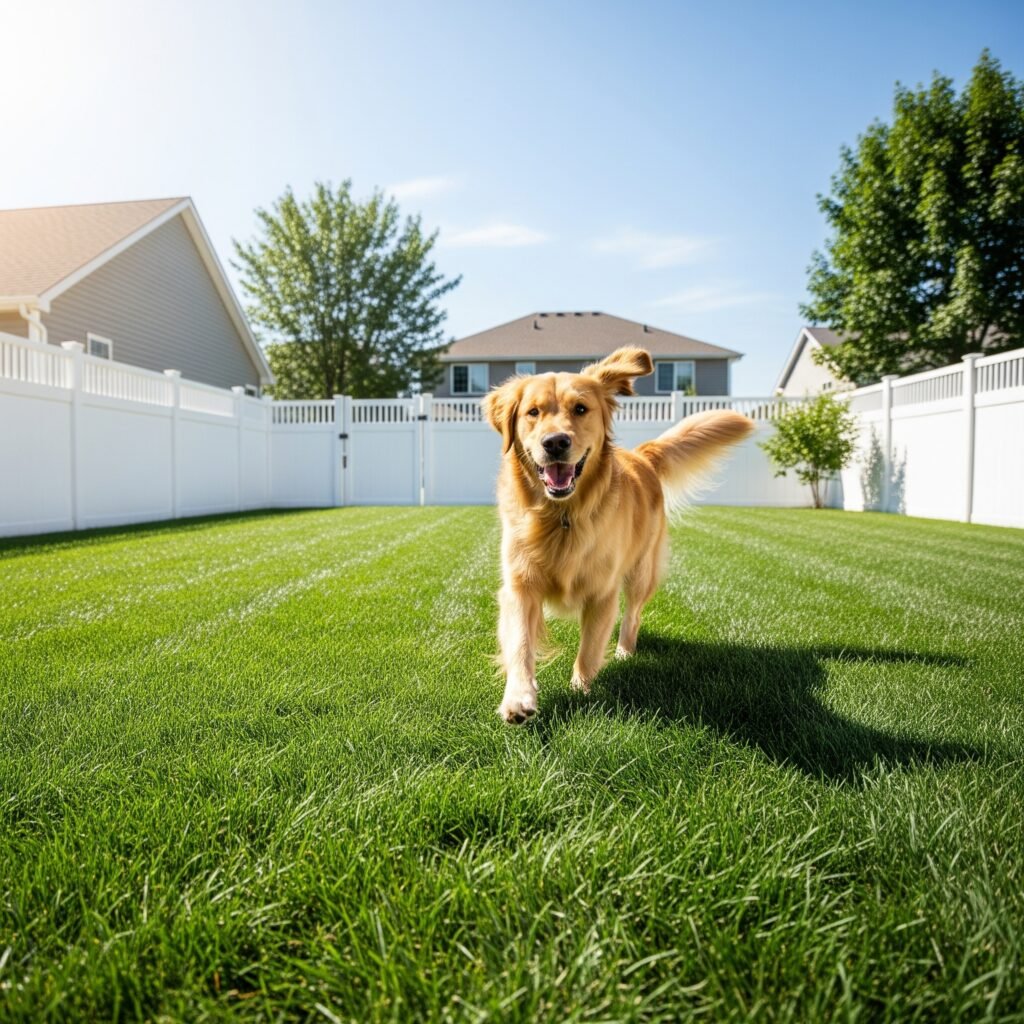
The good news for you is that you will not have to compromise your pet’s health for a perfectly beautiful lawn. This guide will pave the pathway to each (not limited to) natural homemade herbicide, to pet safe commercial products that will not harm your beloved furry friends. This will explore viable alternatives to keeping your yard looking flawless, while enjoying full peace of mind that your pets can roam freely and with safety.
Defining Pet Safe Herbicides
Pet safe herbicides are weed-control products that remove unwanted plants without posing a considerable health risk to your pets. These products do not contain harsh chemicals that can be absorbed through your pet’s skin and paw pads or can potentially harm your pet if ingested.
Pet-safe weed killers can have many different functions. Some, like vinegar, use natural acids to burn the weeds, while others will use barriers or completely natural products in order to create non-lethal dysfunction to the plant. The significant difference is that these products will break down rapidly in the environment, not leaving dangerous residues to harm your pet in the meantime.
What is a “Pet Safe” Herbicide ?
Pet Safe herbicides primarily use:
• Natural acids (vinegar, citric acid)
• Plant based oils (clove oil, orange oil)
• Food grade materials (salt, corn gluten meal)
• Biodegradable that breaks down quickly.
Tip Box: When looking for herbicides, always look for ingredient lists with terms such as “pet-safe”, “non-toxic”, “organic” etc. Even natural products need to be used according to directions.
Why Traditional Weed Killers Are Harmful to Pets ?
Traditional herbicides are composed of deadly chemicals that can cause significant harm to your pet. In a study conducted in 2012, the researchers found that a combination of increased pesticides in the lawn and parks contributed to a nearly 70% increase in occurring cancer lymphoma in dogs. This alarming statistic exemplifies why it is important to use a pet safe herbicide for your family’s health.
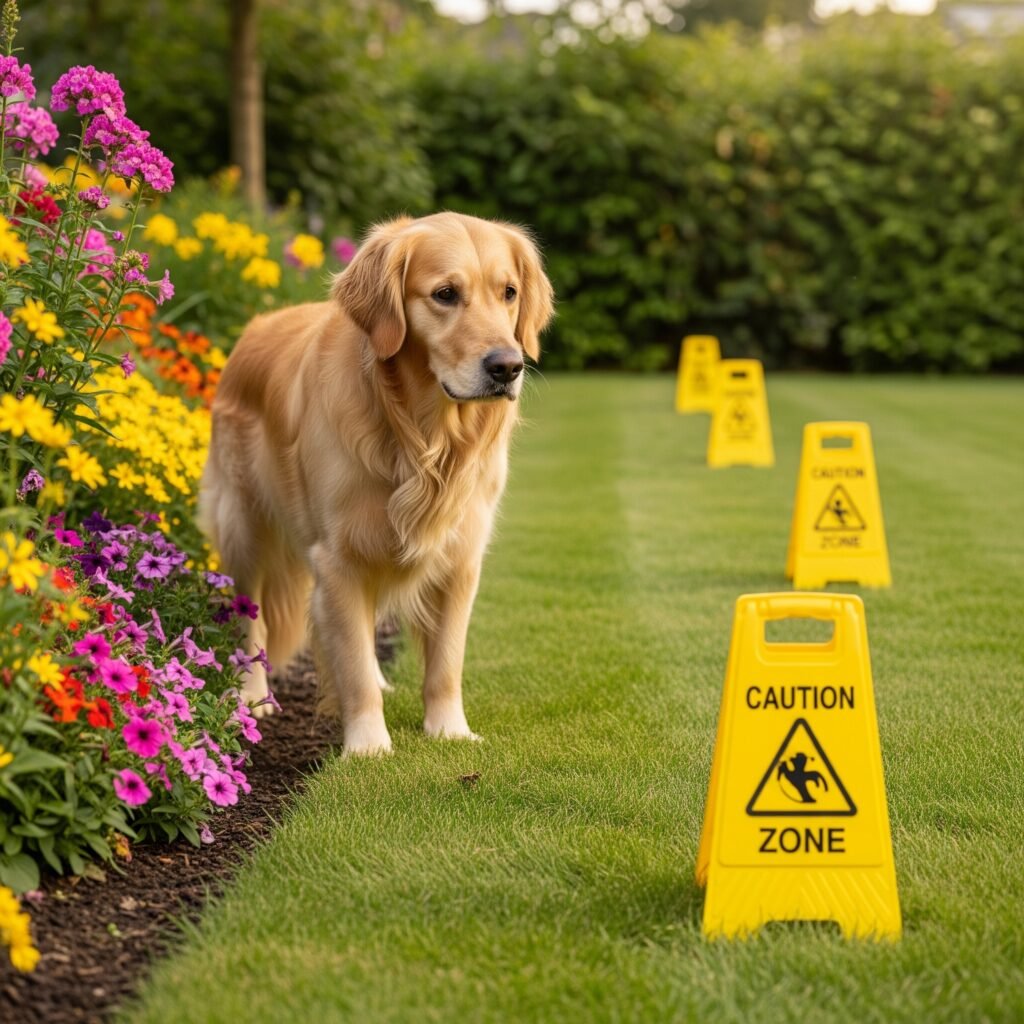
Common Dangerous Chemicals Found in Traditional Herbicides
One ingredient of grave concern is glyphosate. According to the World Health Organisation (WHO), it is considered ‘probably carcinogenic’ in humans. Hence, it is an obvious concern for pet safety.
Other harmful chemicals include:
• 2,4-D (cancer and reproductive issues)
• Dicamba (skin and eye irritation)
• Atrazine (hormone disruption)
How Do Pets Get Exposed to Hazardous Contaminants of Herbicides?
Pets are exposed to herbicide toxins when they:
1. Touch treated surfaces
2. Inhaled spray particles
3. Ingested contaminated water or weeds
4. Groomed their contaminated fur and paws
Warning box: Do not allow pets onto treated and sprayed areas until the product has dried completely and waiting period is over. Even ” pet safe” products should have an application and drying period.
Best Natural Pet Safe Herbicide Options
Natural alternatives publicly provide options for effective weed management with no exposure to potential risk of synthetic chemicals. Below are the most effective natural options that are safe for pets:
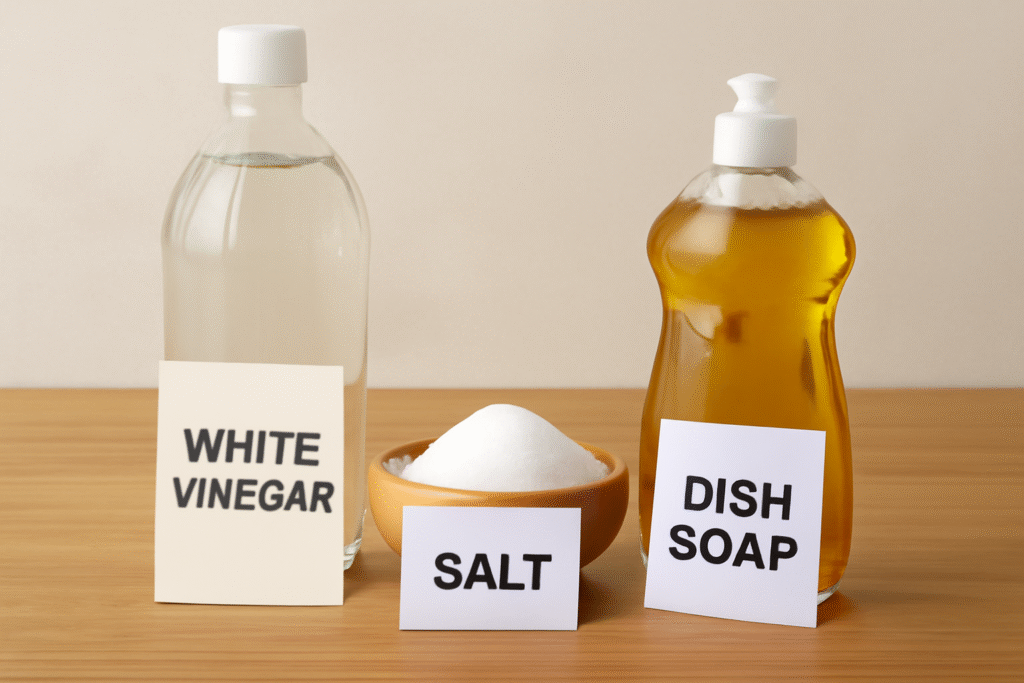
1. White Vinegar Solutions
Household white vinegar (5% acetic acid) is one of the easiest pet safe options. Concentrated vinegar can be used as a DIY weed killer, due to it being acidic it works by depleting the pH of plant tissue which will cause the plant to dry out and die.
Pros:
• Is readily available in most homes
• Is completely safe for pets once dried
• Works quickly on young weeds
• Is biodegradable and pet safe for the environment
Cons:
• May require repeated applications
• Can deplete soil pH temporarily
• Is less effective with established weeds
2. Corn Gluten Meal
Corn gluten meal is a 100% natural lawn and garden product consisting of a singular ingredient that is safe for pets. Corn gluten meal performs as a pre-emergent herbicide to stop the germination of weed seeds rather than killing weeds that have already germinated.
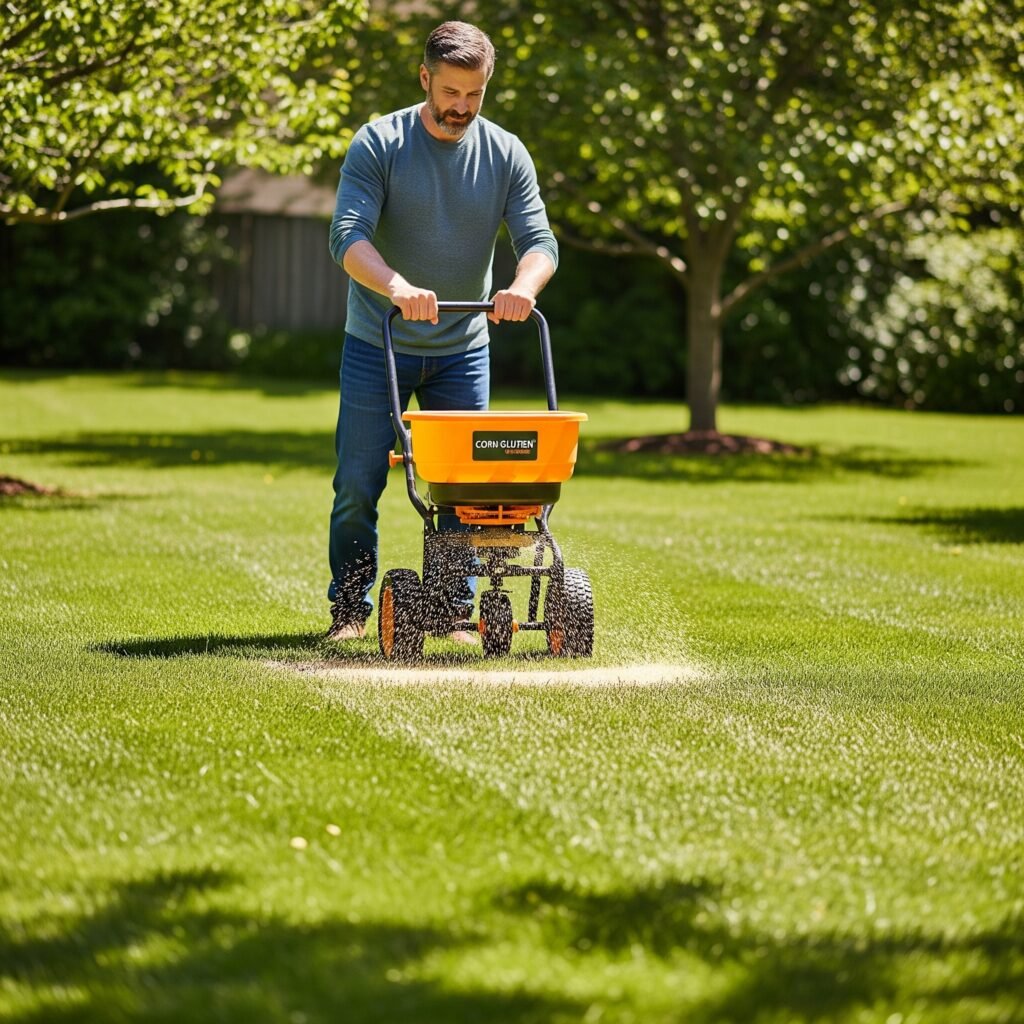
When to apply:
• Early spring before the weeds germinate
• Early fall to prevent weeds from germinating over the winter.
• Water lightly after application
3. Boiling Water Treatment
Hot water is most likely the safest herbicide option available for pets. Hot water kills indiscriminately by destroying the plant cell structure immediately.Best Applications:
• Individual weed spot treatment
• Walkways and driveways
• Weeds in gravel areas
Tip Box: Boiling water works best on sunny days when weeds are actively growing. The combination of heat stress and exposure to sunlight provides optimal effectiveness.
Best Commercial Pet Safe Herbicide Products
While natural solutions have their benefits, sometimes you need the ease and effectiveness of commercial herbicides. Here are the best-rated commercial pet safe herbicides:
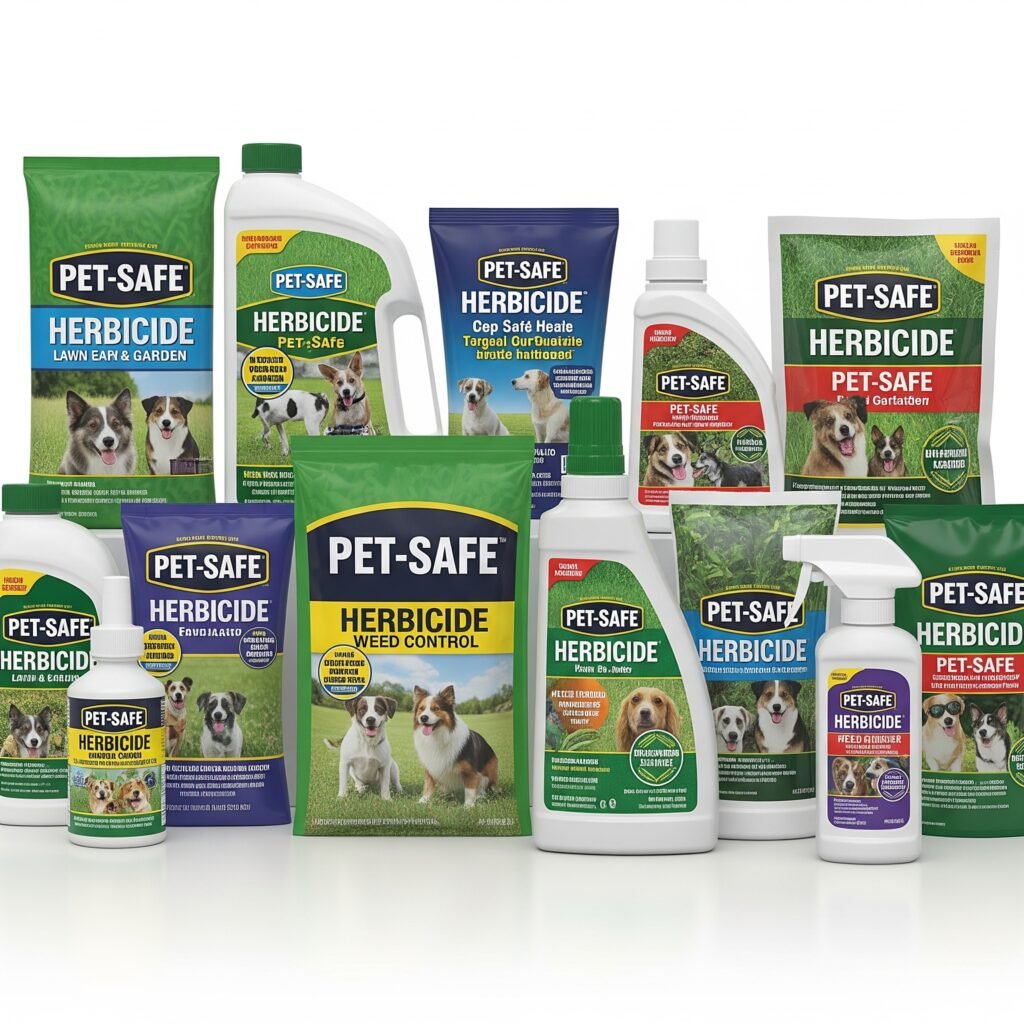
1. Bonide Burnout Fast-Acting Weed and Grass Killer
This weed killer is a reasonable option as it has few ingredients, all of which are considered safe for pets when applied according to the directions. This formula is made from citric acid and clove oil.
Key Features:
• active ingredients: citric acid and clove oil
• fast acting
• safe for pets & children when dried
• OMRI listed for organic gardening
Application tips:
• apply on sunny days for best results
• spray directly on the weed foliage
• may require repeat application for tough weeds
2. Green Gobbler Vinegar Weed and Grass Killer
This product contains 20% concentrated vinegar and is hard to beat for a non-toxic option for weed control. This herbicide is especially good for broadleaf weeds and young grass.
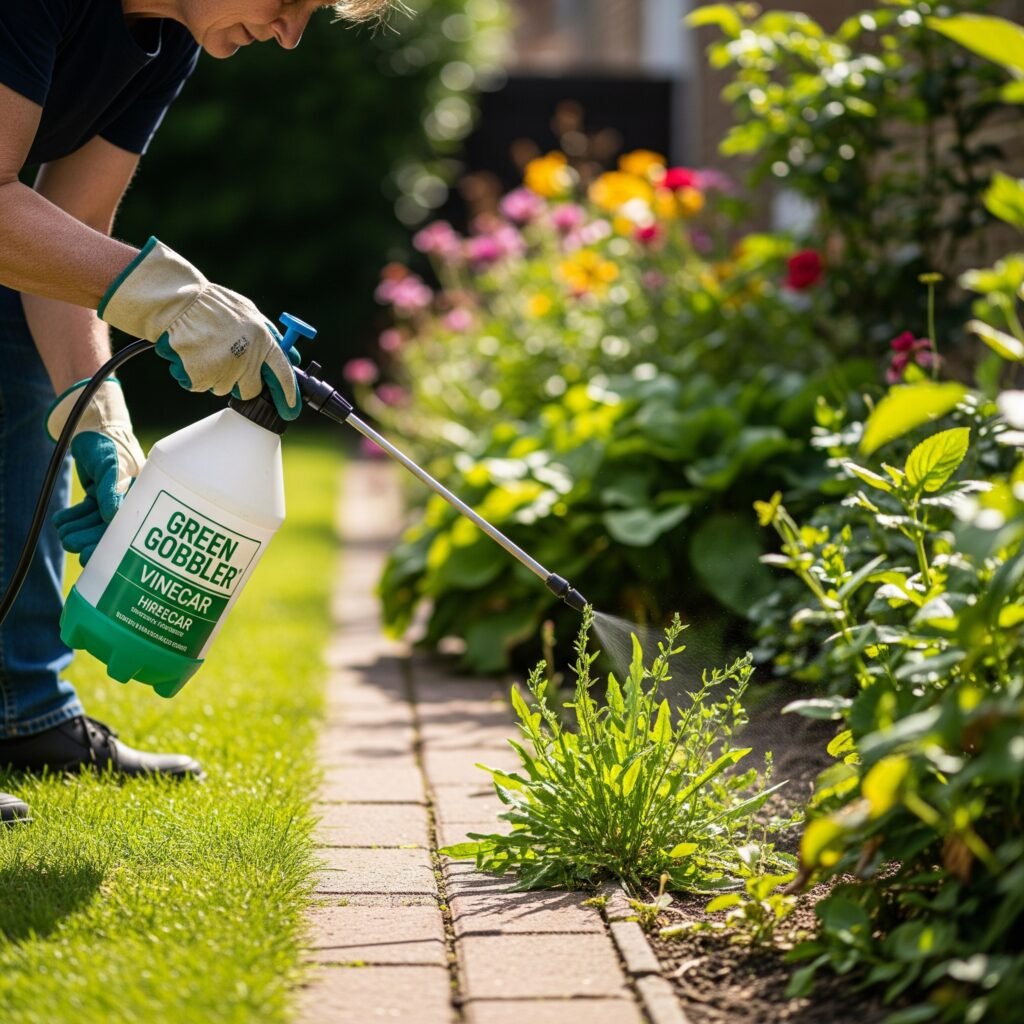
Pros:
• Stronger than household vinegar
• Ready-to-use
• No mixing
• Organic gardening-safe
Cons:
• May take multiple applications
• If overspray occurs, it may kill desirable plants
3. Harris 20% Concentrated Vinegar
Harris’ 20% concentrated vinegar is difficult to beat when it comes to looking for a weed killer that is not dangerous and not toxic in any way. This is a professional-strength vinegar product that does not have harmful chemicals.
Quote box: “Having lost one dog from lymphoma and knowing they all like to munch on backyard ‘greens’ I was looking for something before I put down our own herbicide, that was non-toxic but could still do the job. Green Gobbler did the trick.” – Pet owner review
DIY Homemade Pet-safe Herbicide Recipes
If you decide to make your own pet-safe herbicide, you will save a ton of money and you get to control the ingredients! Here are a couple of effective recipes that work great!
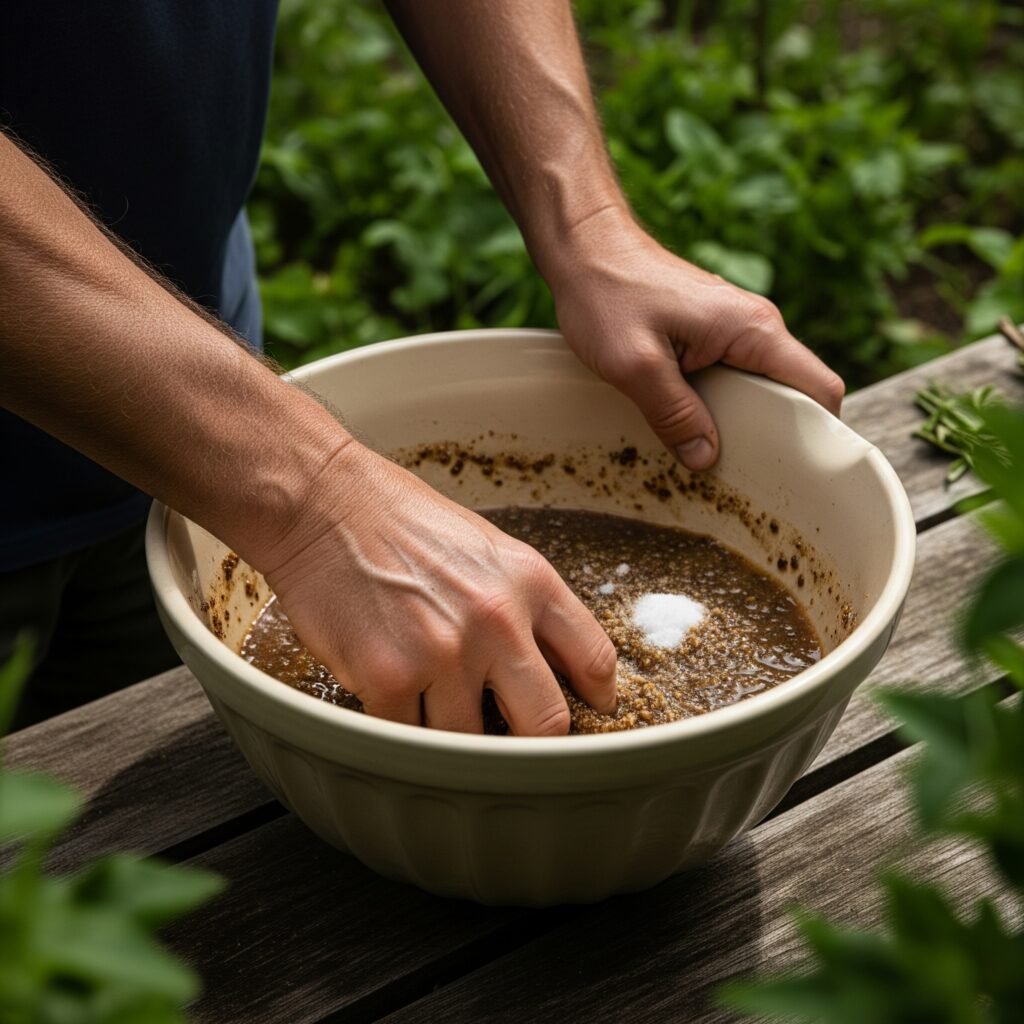
Recipe 1: Classic Vinegar, Salt and Soap Solution
Mix together 1 gallon of white vinegar, 1 cup of salt and 1 tablespoon of liquid dish soap. You will have an effective weed killer that is safe for pets.
Ingredients:
• 1 gallon white vinegar (5% acetic acid)
• 1 cup table salt
• 1 tablespoon liquid dish soap Making
Instructions:
1. Pour vinegar into pump sprayer
2.Add salt and stir until it dissolves
3. Add dish soap and gently mix.
4. Spray on the weed directly when out in sunny conditions.
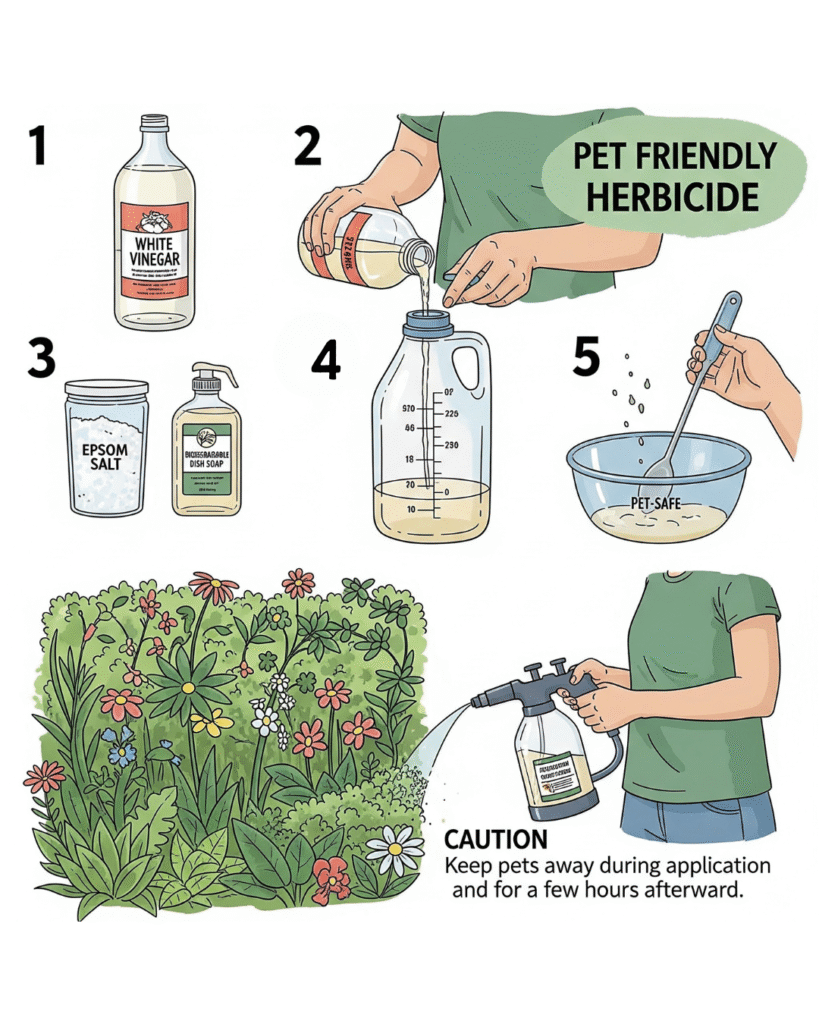
Recipe 2: Enhanced Citrus Formula
½ gallon white vinegar mixed with ½ bottle of lemon juice will create the enhanced formula. The citric acid from the lemon juice will create the enhanced effect.
Ingredients:
• ½ gallon white vinegar (higher acetic acid is preferred)
• ½ bottle organic lemon juice
• 1 tablespoon of liquid dish soap.
Benefits:
• Double the acid action
• Pleasant citrus aroma
• Enhanced effect on more difficult weeds
Recipe 3: Corn gluten Meal Barrier
Unlike the treatments above, corn gluten meal is for preventative measures (not treatment) and it provides long-term, pet safe herbicide; it is a barrier to stop germination and requires other reforms for herbicide uses.
Method of application:
1. Apply 20 pounds per 1,000 square feet
2. Time your application to occur just before weed seeds are set to germinate
3. Water lightly after applying
4. Reapply every 6-8 weeks, during the growing season.
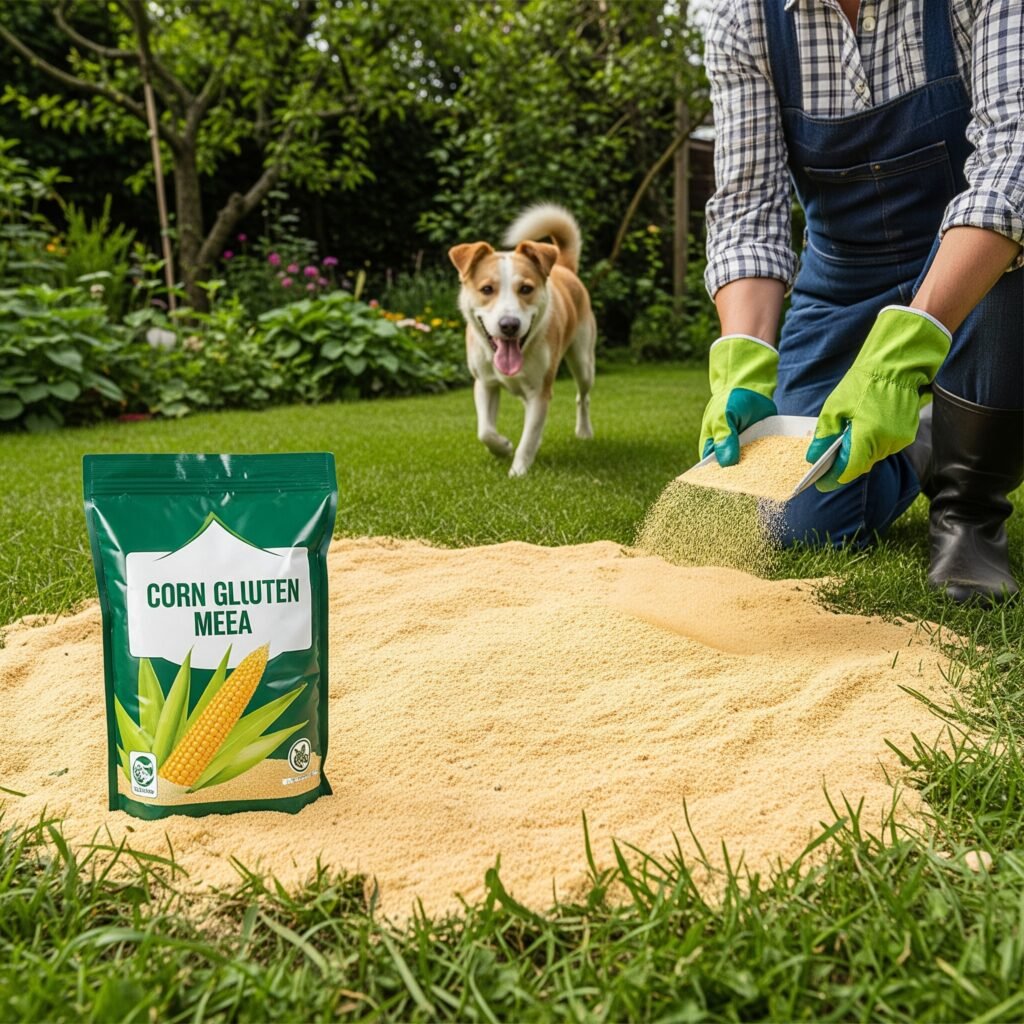
Tip Box: Whatever herbicide you create at home, test it out on a small area to make sure it does not damage any of your desirable plants. Different types of grass and species of plants can all react differently to natural treatments.
Application Methods and Safety Guidelines
Even with the safety and benefits of pet safe Weed Management Strategies
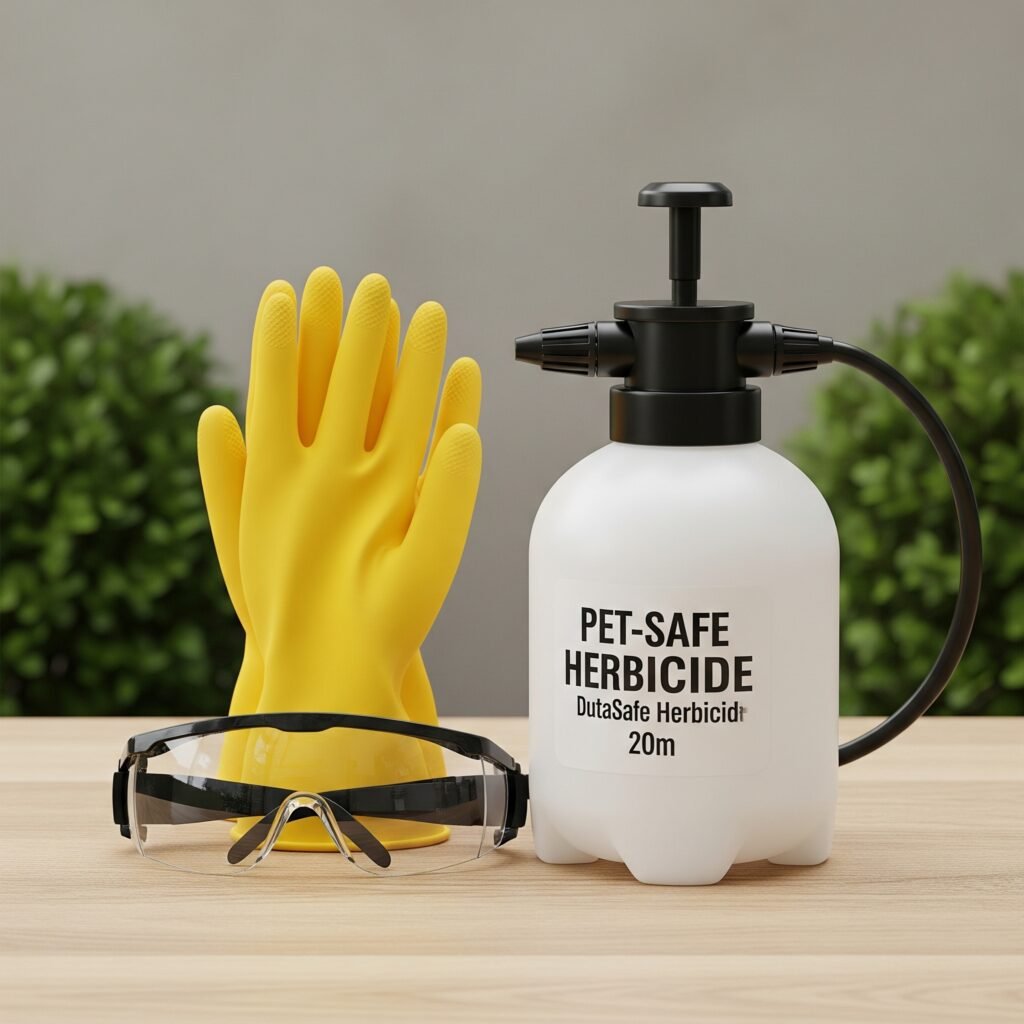
Best Management Practices
When to Apply
• An important part of managing weeds is to know when to apply the pet safe herbicide:
• Apply the herbicide on a sunny, calm day.
• Avoid application on windy days to minimize drift.
• Target weeds when they are actively growing.
• Apply when the morning dew has dried.
Other Weather Related Notes
• Do not apply herbicides before rain (24 to 48 hours).
• Do not apply during hot days (over 85 °F).
• Humidity can influence drying time.
Safety Related to Pets
You still have to take special precautions even with product meant to be pet safe.
1. Keep pets indoors while applying the herbicide.
2. Pay close attention to drying time. Let the herbicide dry completely before letting pets access the area treated.
3. Read and follow the re-entry recommendations on the hill labelled directions.
4. Store and dispose of product in the original container.
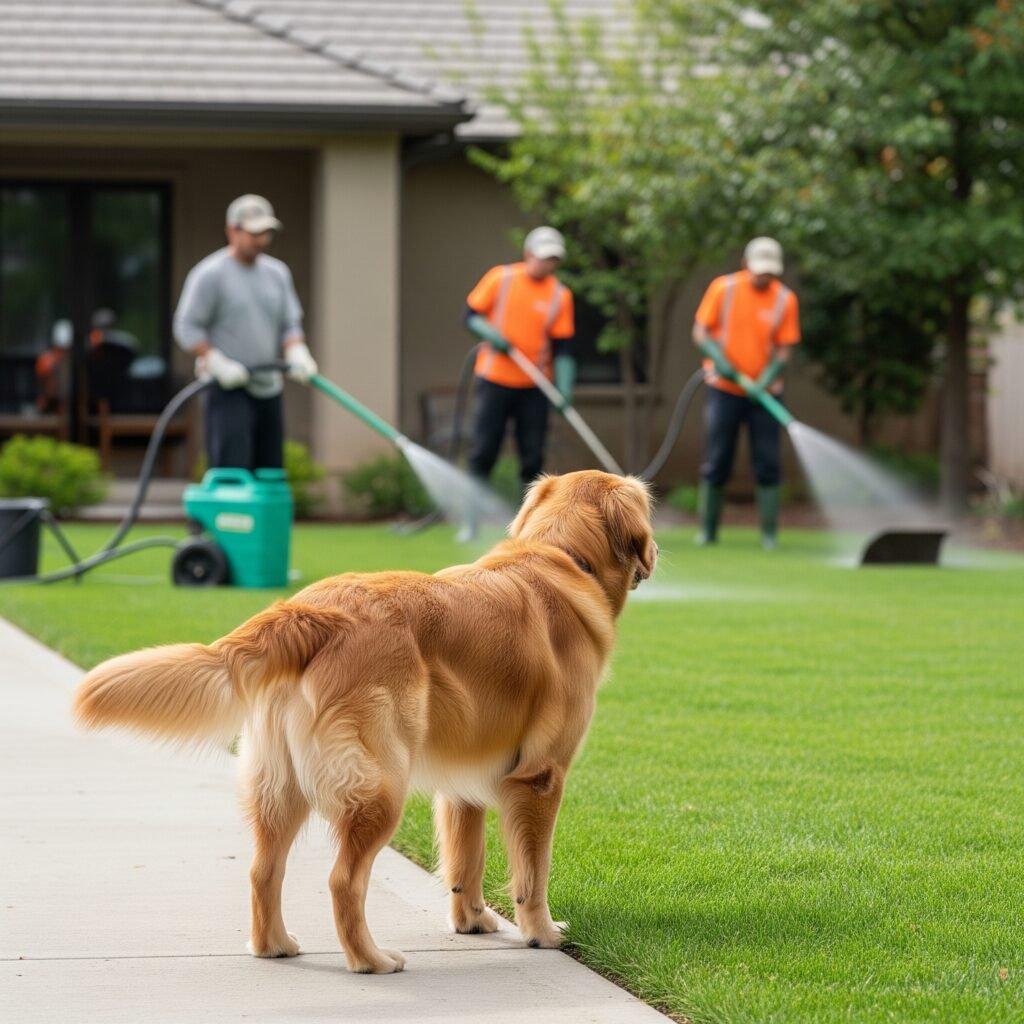
Application Equipment
Some recommended application equipment
• Pump sprayer for liquid application products.
• Broadcast spreader for granular products.
• Protective equipment (gloves, eye protection).
• Garden hose for clean up equipment.
After using application equipment, you should:
• Clean equipment after use.
• Store in dry area.
• Check each time to ensure applicator does not leak.
Warning Box: Never mix any herbicide products together including pet safe products, as chemical reactions can create harmful compounds from generally safe herbicides or may reduce effectiveness
Prevention Methods For Longer-Lasting Control of Weeds
The best pet safe approach for herbicide management includes herbicide treatment. Here’s how to keep weeds out of your yard in a natural way:
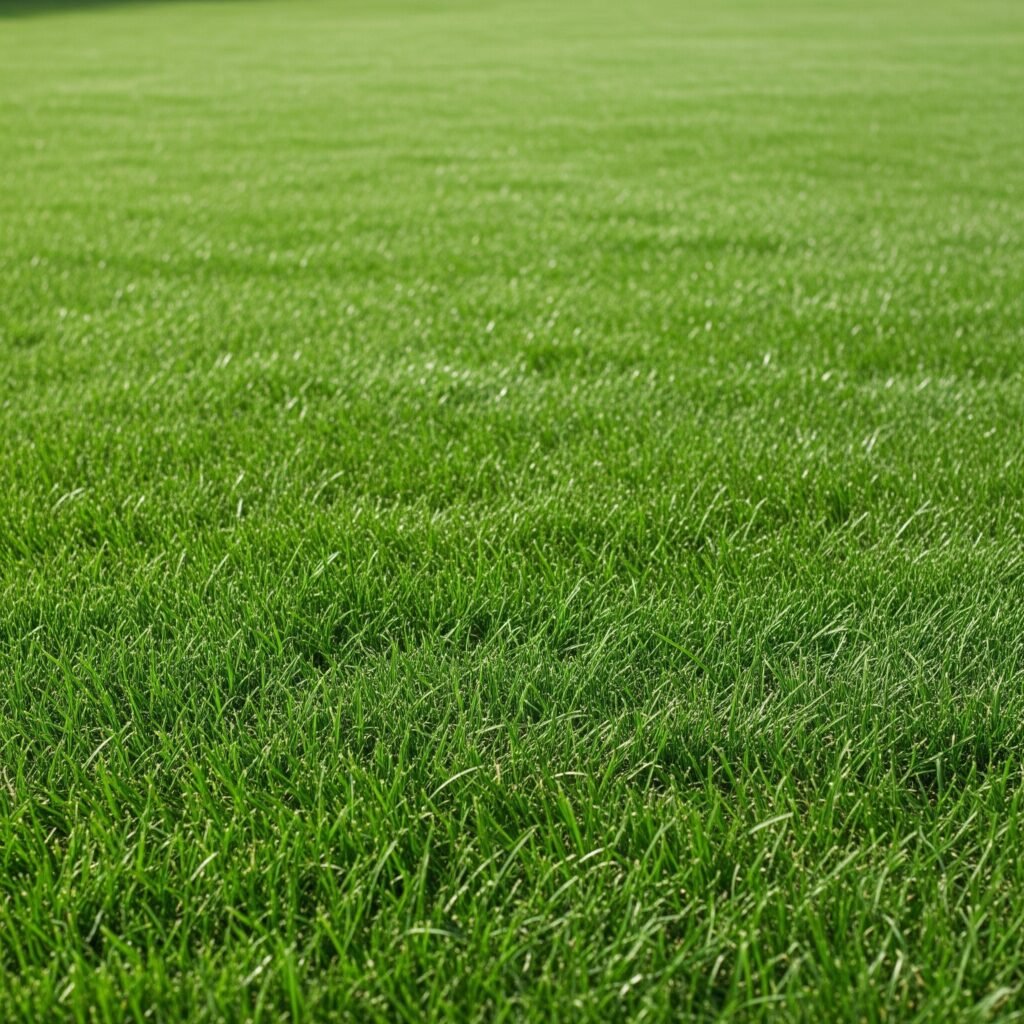
Lawn Health Fundamentals
Weeds’ first line of defence is thick, healthy grass. Grass that is thick and healthy will crowd out weeds naturally.
Important Practices:
• Lawn fertilization (2-4 times a year)
• Lawn watering (1 inch a week)
• Mow at the correct height (3+ inches)
• Overseed thin spots once a year.
Soil Health Enhancement
Healthy soil equals healthy grass and reduced weed problems:
1. Determine the pH of your soil (ideal is between 6.0 – 7.0)
2. Organic matter (compost, aged manure, etc.)
3. Improve drainage in wet areas
4. Aerate compacted soil each year
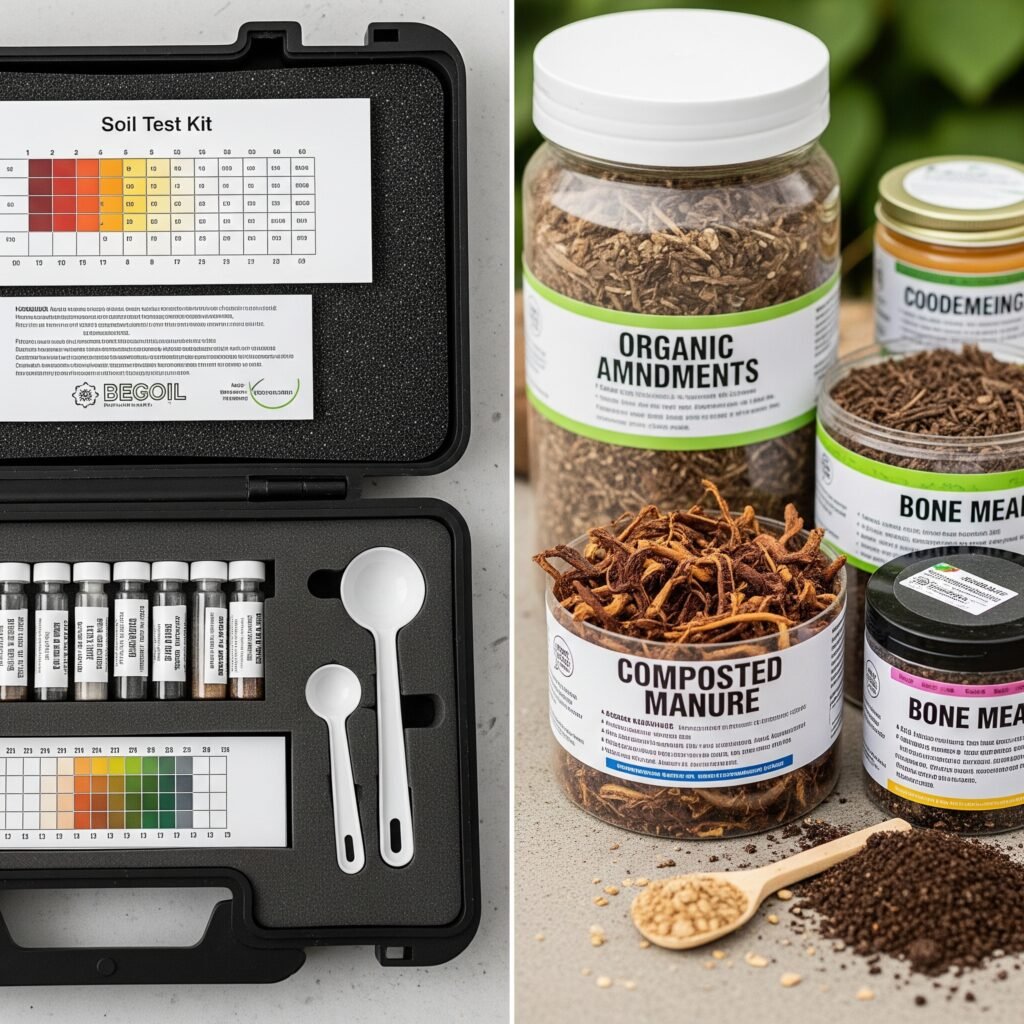
Natural Weed Barriers
Physical barriers that avoid chemicals are:
• Mulch around plants (2-3 inches thick); these can decompose over time;
• Landscape fabric in garden beds;
• Dense planting which shades the soil;
• Ground covers that will not disturb natural ecosystems;
Seasonal Prevention Schedule
Spring:
• Use corn gluten meal before weeds germinate;
• Overseed thin areas;
• Begin regular fertilizing;
Summer:
• Follow the watering schedule;
• Mow at the correct height;
• Spot treat weed area where there are weed resisters;
Fall:
• Apply a pre-emergent for winter weeds or native grass,
• Last fertilizer application,
• Remove leaves and compost.
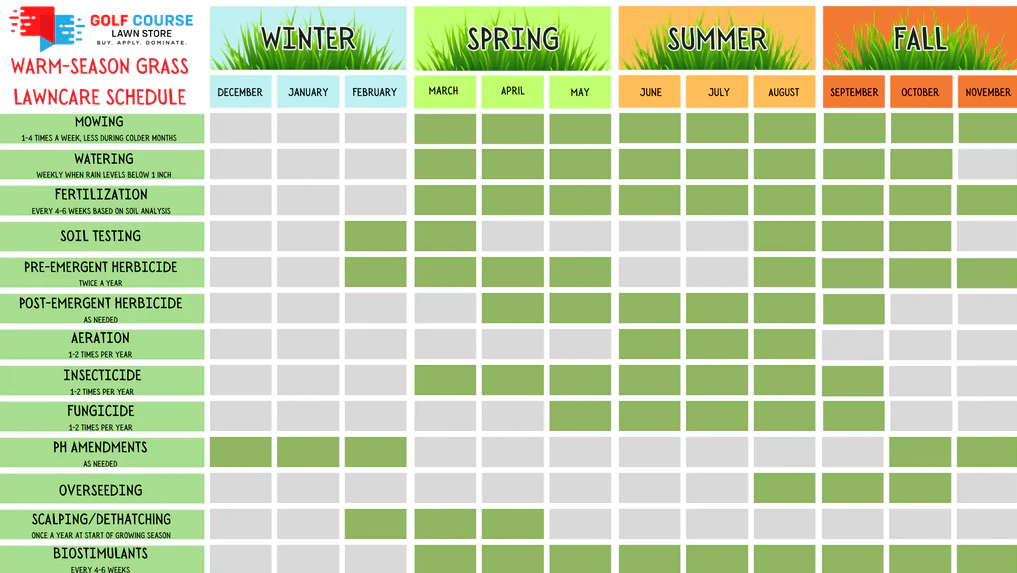
Credit: Ron Henry
Tip Box: 80% of weed prevention is having a thick, healthy lawn: healthy lawn first, pet safe herbicides in spots for secondary areas.
Common Pitfalls to Avoid
Even though the best products are all pet Following are the most frequent mistakes to avoid:
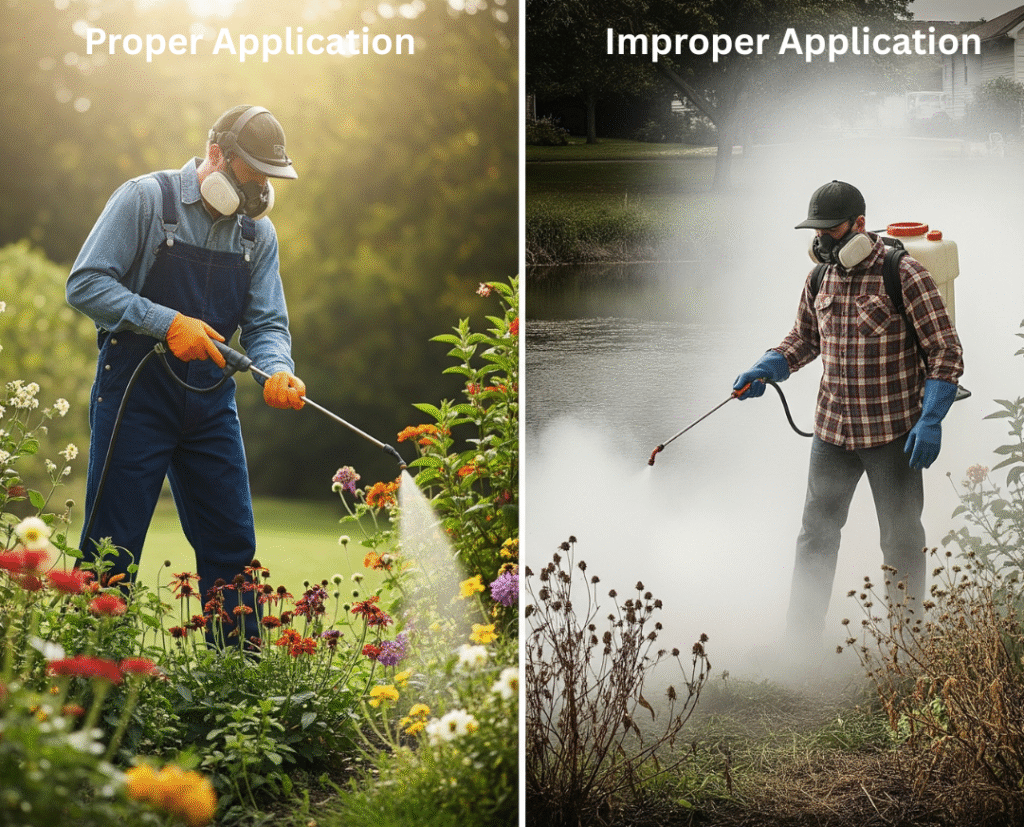
Application Mistakes
Mistake 1: Application at wrong time of year or worse yet at the wrong time of day.
• Never apply any herbicides before it rains,
• Avoid application on windy days,
• Avoid applying herbicides on extremely hot days.
Mistake 2: Applying at the wrong time.
• Pre-emergent products require specific timing,
• Post-emergent products work best on actively growing weeds,
• Timing based on the seasons affects products effectiveness.
Mistake 3: Incorrect concentration.
• Too weak a concentration will not kill vegetative growth,
• Too strong can kill the desirable plants,
• Follow the label directions to the letter.
Product Selection Mistakes
Using the wrong type of product:
• Pre-emergent vs post-emergent product confusion,
• Selective vs. non-selective misuse,
• Granular and liquid application mistakes.
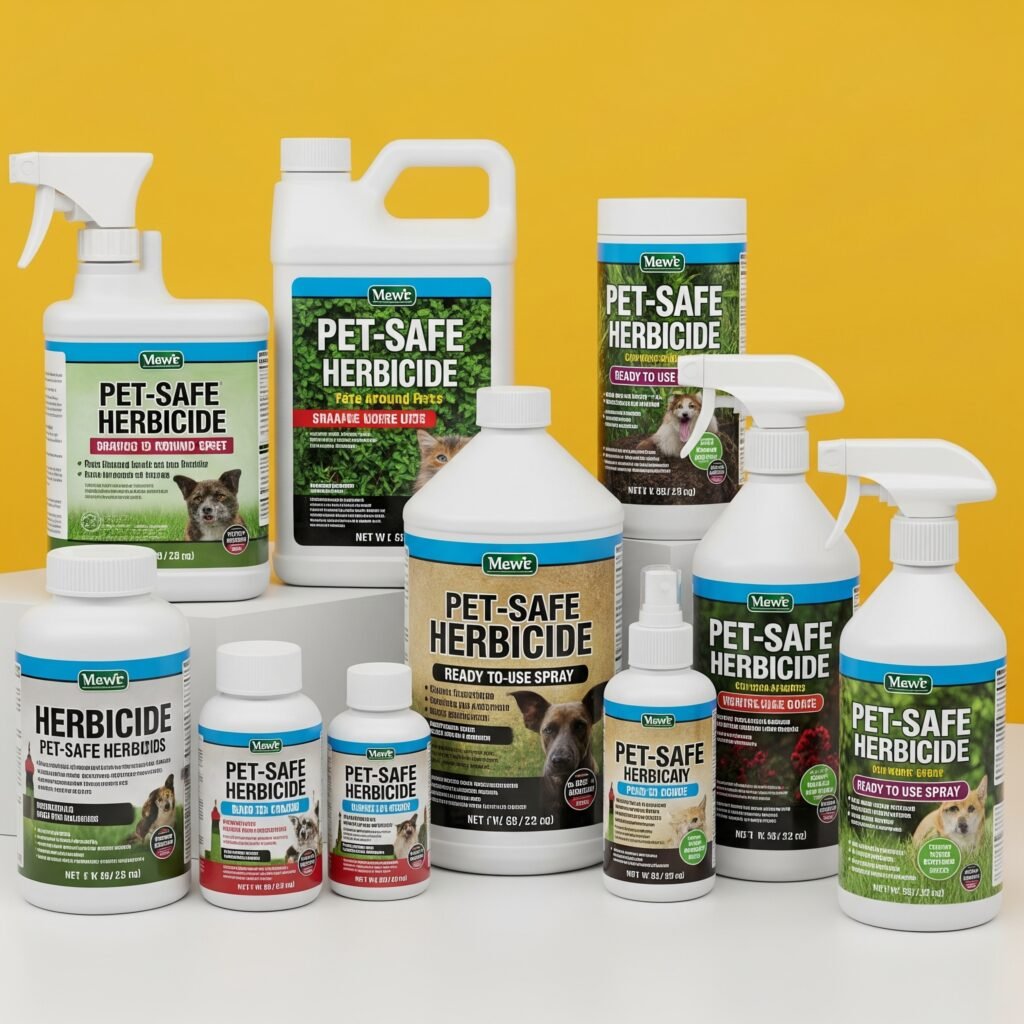
Safety Mistakes
Not recognizing that “natural” means “harmless”:
• Even products labelled “pet safe” require correct and careful application,
• Pets cannot gain access to where potassium is stored, there are still recommended practices to follow,
• Pet safe products are still a product and we recommend using PPE.
Insufficient waiting periods:
• Pets must be kept away during application,
• Drying times for products will be different depending on product and weather,
• Herbicides products could require longer waiting periods.
Warning Box: “Pet safe” doesn’t mean it can be eaten by a pet. Store all herbicide products away from pets and children although they are labelled “natural”. Use proper application practices to ensure that the herbicide is used correctly and safely.
Conclusion
Choosing a great pet safe herbicide for use does not necessarily mean sacrificing effectiveness. Whether you choose to go with natural options like a vinegar and salt mix, or commercial options containing citric acid and clove oil, or preventative applications like corn gluten meal, you’re able to have a great looking yard that is free of weeds without concerns relating to your pets.
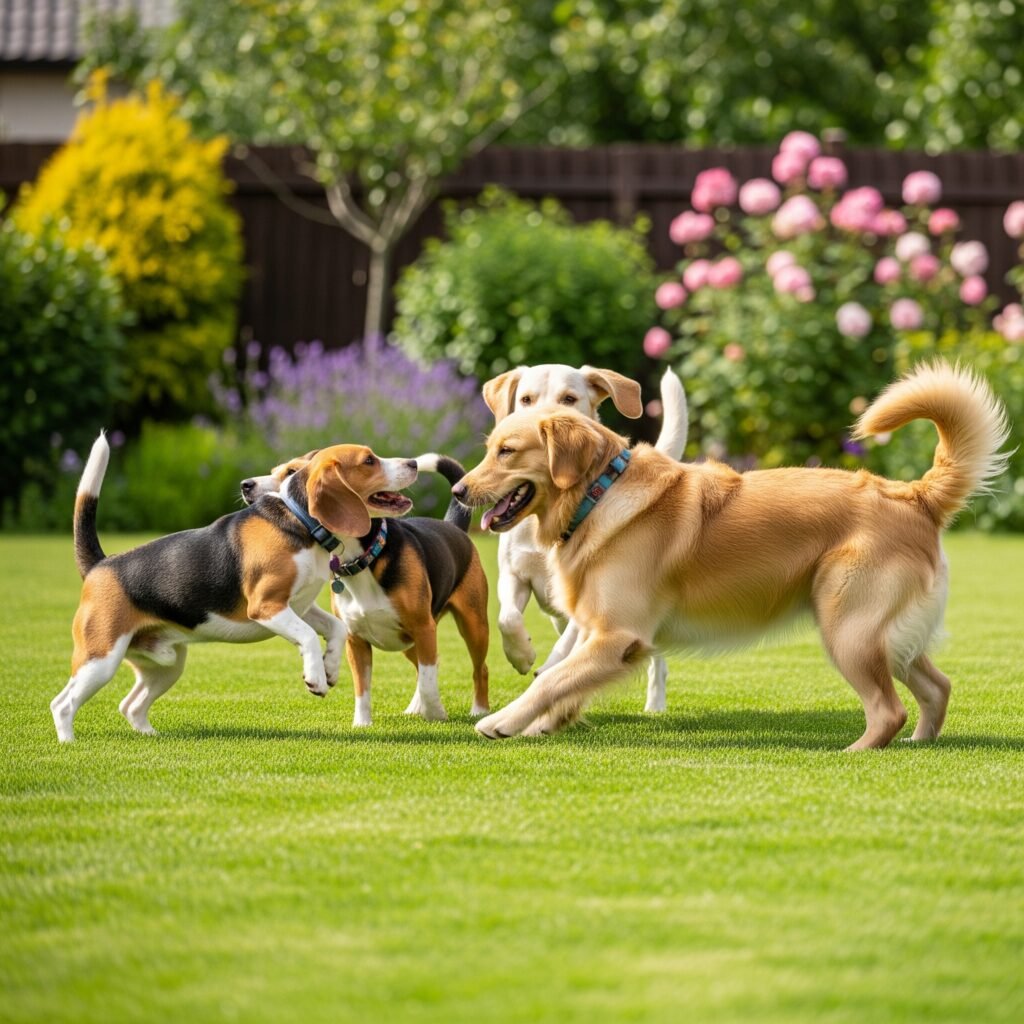
Overall, and most importantly, the best option is to select the correct product, spray at the right time, and consistently care for the overall health of the lawn. Our goal should simply be to achieve a thick, and healthy lawn, where that produces a natural deterrent to weeds, and use pet safe herbicide options for spot treating problem areas.
Of course, start with the simple boiler water, or vinegar treatments for your immediate needs, and then develop your overall prevention strategy for long term success. Remember, your pets will thank you for making it a safe space for them to roam around and play in, and you’ll love the beauty of having a great looking weed-free yard, achieved responsibly.
Are you ready to get started?, on your journey to a pet safe weed-free yard. Check out spaceideasworld.com for gardening advice, product ideas based on effectiveness and specific for pet safety.
FAQ
What is the safest herbicide for pets?
The safest pet safe herbicide options would be boiling water, white vinegar solutions, and corn gluten meal. The only weed killer that could be more pet safe than pure water! These natural alternatives carry a low risk to pets if applied properly and allowed to dry properly.
How long should pets stay off treated areas?
For most pet safe herbicide products, pets should stay off treated areas until the product has dried completely. This is generally around 1-2 hours; however, there is a ‘safe re-entry interval’ for all herbicides and following the directions means your pets are safe and worry free. As always be sure to check the label for specific wait times.
Can I make my own pet safe herbicide?
Yes, you can create some effective pet safe and homemade herbicide solutions with common items around your home. One effective, or pet safe, natural weed killer is simply: a gallon of white vinegar, 1 cup of table salt, and 1 tablespoon of dish soap. Once this dries, it becomes a pet safe weed killer.
Are organic herbicides automatically pet safe herbicides?
Not always. Organic herbicides tend to be better than conventional herbicides but there are some natural ingredients that can cause irritation or be harmful when misused. Some of the so-called ‘eco-friendly’ or ‘natural’ herbicides can also be harmful when misused. Always read labels, follow directions, and keep your pets away when applying any herbicide.
What should I do if my pet is exposed to herbicide?
If your pet was to be exposed to any herbicide, even pet safe herbicide, you should wash the exposed area immediately with clean water, and contact your veterinarian. Most harmful effects from herbicides are the result of being stored improperly and therefore, prevention requires proper storage and application.

